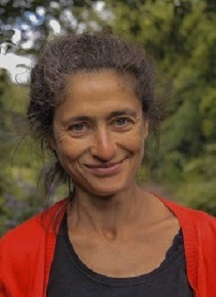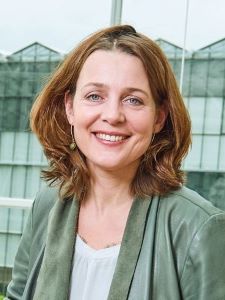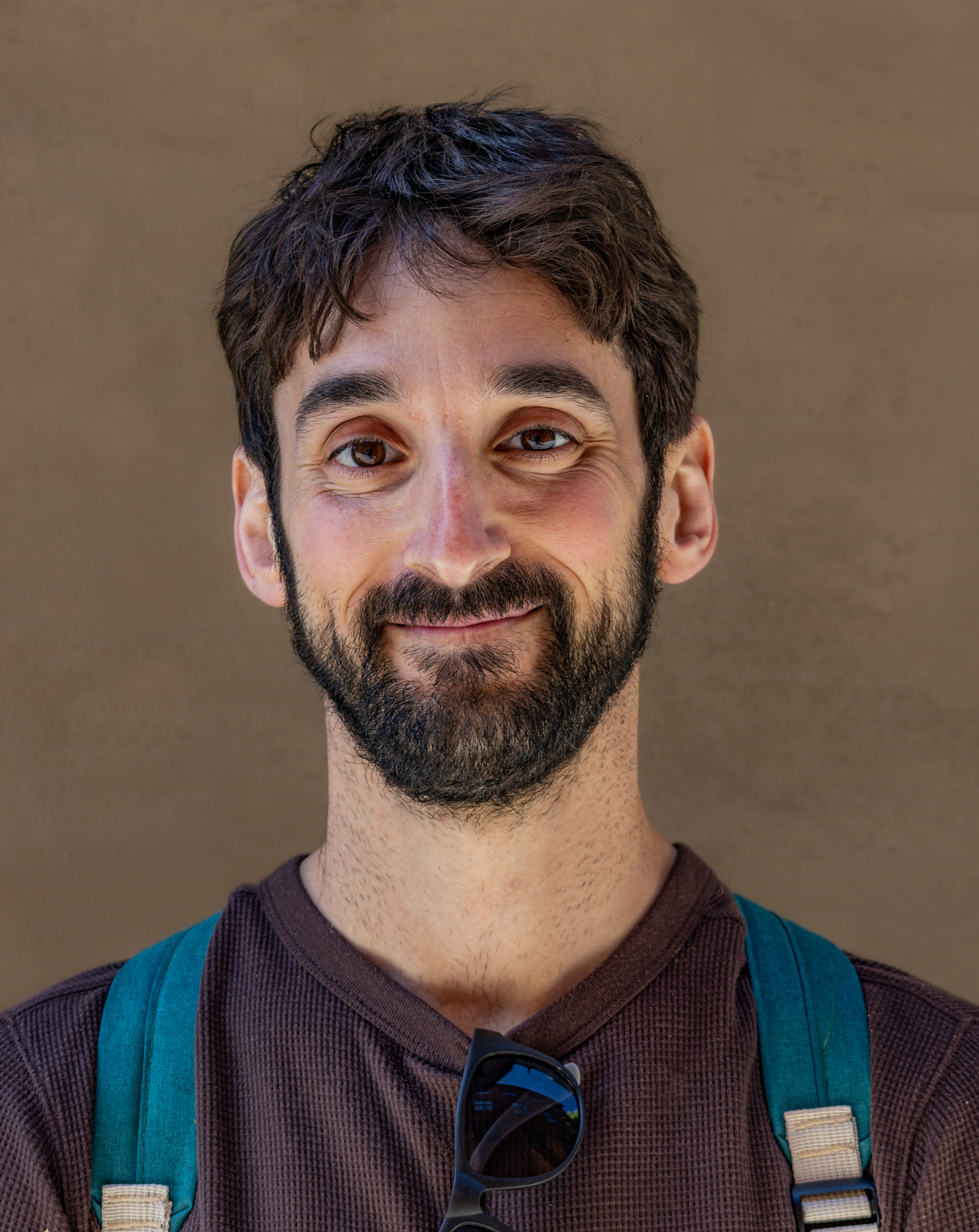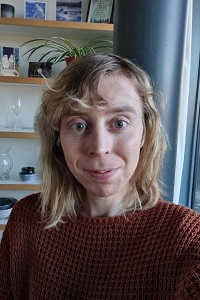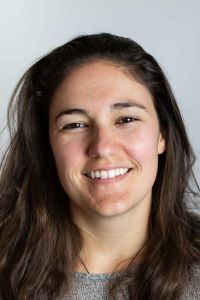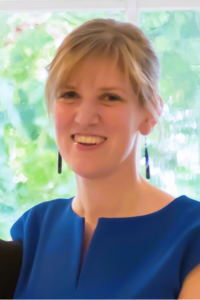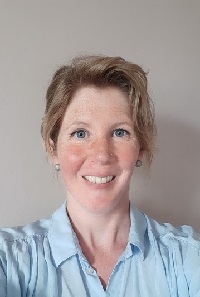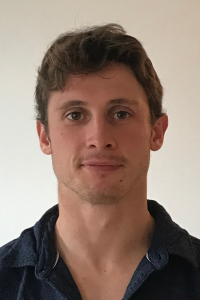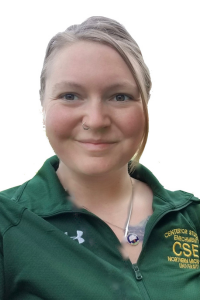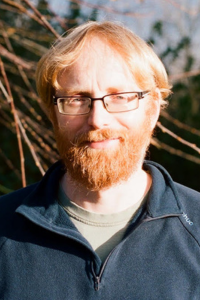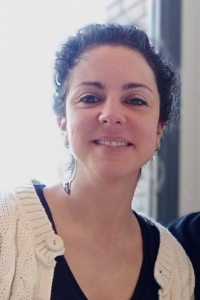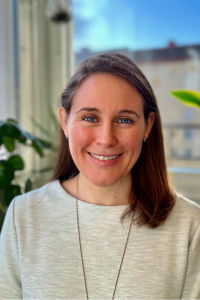Other TABLE collaborators
Associate Prof, Jeroen Candel works in the Public Administration and Policy Group at Wageningen University & Research. He holds a bachelor in Public Administration and Organisational Science and a master in Public Governance (cum laude) from Utrecht University as well as a PhD in 'Putting food on the table: the European Union governance of the wicked problem of food security'. He is interested in emerging forms of food and agricultural policy and studies these by using public policy and governance theories. He was a Research Director for TABLE.
Prof Jamie Lorimer is Professor of Environmental Geography at the University of Oxford. He is an environmental geographer whose research examines the production of environmental knowledge, and how this knowledge comes to shape the world around us. He focuses on powerful understandings of nature and their consequences for human and nonhuman life across different spatial scales. Recent research projects have explored these questions in relation to rewilding, the microbiome and the rise of plant-based eating.
Dr Kelly Reed is an archaeobotanist with interests in food systems, agricultural development and cultural adaptations to environmental change in the past. She is currently the programme manager for the Oxford Martin Programme on the Future of Food and the Wellcome Trust funded Livestock, Environment and People (LEAP) project based at Oxford University.
Prof Gert Spaargaren is Emeritus Professor at the Environmental Policy Group at Wageningen University. His main research interests are in environmental sociology, sustainable consumption and behaviour, and globalisation of environmental reform. Gert was the first strategic director of TABLE at WUR and continues to support TABLE as a senior staff member.
Prof Tiny van Boekel is Emeritus Professor at the Department of Agrotechnology and Food Sciences, Wageningen University and Research. He has expertise in food quality and safety, food processing and novel proteins.
Prof Imke de Boer is Professor of Animal Production Systems in the Department of Animal Sciences at Wageningen University and Research. Her research examines what role animal-source food could play in a sustainable diet.
Rosina Borrelli worked as Coordinator for TABLE. She holds a BSc in European Business with Technology and an MA in Culinary Arts. She works within the Food Systems Transformation team in the Environmental Change Institute at the University of Oxford on the IFSTAL Programme training future food systems thinkers. Her main interests lie in food education, and she is a trustee for TastEd, and works with the local Food Partnership in Eastbourne.
Samara Brock has worked for over 15 years in sustainable food systems as a planner for the city of Vancouver, supporting the development of agricultural projects in Cuba and Argentina, and as a program officer at the Tides Foundation in Vancouver. She holds a master's in Community and Regional Planning from the University of British Columbia, and a master’s in Food Culture from the University of Gastronomic Sciences in Italy. She is currently pursuing a PhD at the Yale School of Environment. Her dissertation research project engages with organisations attempting to influence the trajectory of the global food system as a way to understand how they comprehend this system and how they prioritise strategies to transform it.
Dr Karin Jonsell is a communications officer at SLU Future Food, a platform that develops research and collaboration for ecologically, economically and socially sustainable food systems. She has a background in communication and coordination both in Sweden and abroad, and has a PhD in Astrophysics.
Matthew Fielding is the Head of the Global Communications and Impact Division at SEI, where he leads the development and implementation of strategic communications to amplify the impact of research and initiatives. He also plays a key role as a Senior Advisor to the Swedish International Agriculture Network Initiative (SIANI), contributing to a broad range of research projects and initiatives in capacities such as researcher and senior project manager. With over 15 years of experience spanning five continents—including the UK, US, Malaysia, Ghana, Peru, Kenya, Sierra Leone, Thailand, and Costa Rica—Matthew’s expertise lies in the fields of environment and sustainable development. His diverse background, which bridges both social and natural sciences, allows him to approach challenges from a multidisciplinary perspective. His work has ranged from smallholder agriculture and soil carbon to permafrost, maternal health, rural livelihoods, and the interplay between national development strategies and bilateral aid. He played a vital role in clarifying TABLE's role, structure and processes.
Prof Michael W. Hamm is the C. S. Mott Professor of Sustainable Agriculture and Senior Fellow, Centre for Regional Food Systems (CRFS) at Michigan State University, where for 17 years Mike has published and engaged with communities on a range of topics regarding health, sustainable food systems, urban agriculture, and regional/local food systems. He has a Ph.D. in Human Nutrition. Prior to his 2003 move to MSU he spent nineteen years on the Rutgers University faculty in Nutritional Sciences where he co-founded the New Jersey Urban Ecology Programme and the Rutgers Student Organic Farm.
Morgan Farl studied Graphic Design and Advertising at Drake University, earning a BA in Creative Advertising. He currently works as a Freelance Graphic Designer on the island of Maui.
Rachel Carlile has completed an internship at TABLE. She has an MSc in International Development from the University of Edinburgh and is now working on her PhD. Working across anthropology, human geography and development studies, Rachel is interested in lived experiences of food production and consumption, particularly in post-colonial contexts.
Tallula Smithson has completed an internship at TABLE. She is a part of the Midlands Integrative Biosciences Training Partnership (MIBTP) doctoral training program under the sustainable food and agriculture theme. Her research focuses on exploiting crop genetic resources to improve abiotic stress resistance, especially in relation to climate change.
Rebecca Sanders has completed at internship at TABLE. She graduated as a veterinarian in 2011. After six years as a meat industry veterinarian in New Zealand, her growing concerns about the ethical and environmental implications of the meat industry prompted a radical change in trajectory. One MSc in sustainable agricultural technologies later, she’s embarking on a PhD in which she will focus on ecologically based management strategies for pests affecting horticultural crops. She is interested in food systems and the social justice issues embedded in food. Rebecca places considerable faith in the humanising instincts we tap into when we share food with others.
Trish Fisher has completed an internship at TABLE working on multiple projects. She is a graduate student at the University of Michigan pursuing dual master’s degrees in public policy and public health. Trish’s research interests lie at the intersection of climate, food, and health policy.
Walter Fraanje worked at TABLE and the Food Climate Research Network for five years as a Research and Communications Officer. He holds an MSc in Environmental Policy (cum laude) from Wageningen University, the Netherlands, and a BA in Philosophy and a BSc in Industrial Engineering and Management from the University of Groningen. Before joining FCRN/TABLE, Walter was the content coordinator of an EDx MOOC on ‘Co-creating Sustainable Cities’ (Wageningen University and AMS-Institute). As an environmental sociologist, he is interested in sustainable consumption studies and social and political questions underlying food system sustainability. He aims to understand if and how changes in people’s day-to-day lifestyles and (collaborative) consumption practices can contribute to sustainable development.
Helen Breewood worked as a Research and Communications Officer at TABLE for five years, based at the University of Oxford. Helen holds an MEng and BA in Chemical Engineering via Natural Sciences from the University of Cambridge. During her MPhil at the University of Manchester, she used life cycle assessment to calculate the environmental impacts of meals prepared in a canteen. She also worked on Maastricht University's project to create the world's first lab-grown burger. Helen blogs about global sustainability problems and solutions at The Progress Motive.
Jack Bosanquet has completed an internship at TABLE. He has an MSci in Biological Sciences from the University of Birmingham where he is currently studying a PhD with the Midlands Integrative Biosciences Training Partnership (MIBTP) doctoral training program. His research focuses on how potato genetics links to their ability to cope with environmental stresses and how this can inform the breeding of new varieties.
Theodore Heaton-Davies has been a volunteer at TABLE, mainly working on the Feed podcast. Prior to this, his research focussed on the impact of climate on food systems, and how climate change is perceived in the farming community. He holds an MSc in Environmental Technology from Imperial College, and also works as a chef in London trying to make the restaurant world more sustainable.
Laura Elena Martínez holds a PhD and a Master’s Degree in Economics and currently works as an Associate Researcher at the Instituto de Investigaciones Sociales at the Universidad Nacional Autónoma de México (UNAM). Additionally, she coordinates the national research network on Localized Agri-Food Systems Mexico (Red SIAL-Mexico). Her research interests encompass the analysis of localized agri-food systems, territorial governance, the economics of technology and innovation in the agri-food sector, and agri-food public policies. She has completed Diploma studies in family farming, innovation in the agri-food sector, and the revitalization of rural territories, organized by international institutions such as the Food and Agriculture Organization of the United Nations (FAO), the Inter-American Institute for Cooperation on Agriculture (IICA), and the Innovagro Network. Furthermore, she is a professor at UNAM, the Universidad Autónoma Metropolitana (UAM), and the Universidad del Valle de México (UVM).
Renée Cardinaals is a PhD candidate at Wageningen University and Research, where she works in the Circular Food Systems group of dr. Hannah van Zanten. In her PhD, she looks at how dietary shifts can impact planetary and human health. She is mainly interested in the intersection, where there may be friction between planetary and human health, or where they can be improved simultaneously. To gain holistic insights, she applies food systems modelling using the CiFoS model that integrates multiple food system components to produce healthy diets for a region or country while staying within planetary boundaries. Besides the scientific approach of modelling, she likes to find ways of sharing scientific insights with research from other disciplines or with a wider audience, in an informal way.
Alejandra Reyes Jaime holds a Ph.D. in Sustainability Sciences with honors, a Master of Science in Sustainability Sciences with honors, and a Bachelor of International Relations, all from the National Autonomous University of Mexico (UNAM). Her professional background includes roles as a university lecturer at institutions such as UNAM, UMA, and Rosario Castellanos University. Additionally, she has worked as a consultant for international cooperation agencies like GIZ and has been a Deputy Director at the Ministry of Finance and an advisor at the Chamber of Deputies. Furthermore, she has experience as a liaison officer in the private sector. Her scholarly output comprises four scientific articles in specialized journals and the contribution of two chapters in collective books. Her areas of expertise include sustainability sciences, governance, and waste management of modern food.
Sophie Hockley worked at TABLE as programme manager from 2021-2024. She has a background in research administration and communication, project management and policy work. She holds an MSc in Anthropology, Environment & Development from University College London, and is particularly interested in food systems in relation to the social and environmental aspects of land use and spatial planning.
Rye Hickman has completed an internship at TABLE and also worked on TABLE's newsletter FODDER in 2024. They are currently pursuing a PhD in sustainable food systems and agriculture at the University of Greenwich and Rothamsted Research funded by the UK Food Systems Centre for Doctoral Training. Rye is particularly interested in human-nature relations and how attention to the more-than human world can contribute to the development of an ethics of care for nature within food production systems.
Hester van Hensbergen worked at TABLE as a researcher and writer from 2023-2024. Her interest in the food system has taken several forms: she has worked as a food and politics writer, a programme manager for the Oxford Real Farming Conference, and a chef in London and southern France. Hester’s research background is in environmental politics and the history of the social sciences. She holds a BA in History (2015), an MPhil in Political Thought and Intellectual History (2017), and a PhD in Politics and International Studies (2021) from the University of Cambridge. She has spent a year at Harvard University as a Kennedy Scholar and a semester at Duke University as a research fellow.
Nandini Agarwal joined TABLE as a visiting researcher in November 2024. She is a German Chancellor Fellow at the Alexander von Humboldt Foundation researching the role and impact of Food Policy Councils in transforming urban food systems. Previously, she worked on policies for scaling up regenerative agriculture with a focus on sustainable production and consumption in India. She completed her Masters in Environmental Policy from Sciences Po, Paris. Currently, she seeks to enable knowledge exchange and foster deeper collaboration between food systems actors in India, Germany and beyond.
Dr Emma Burnett is a researcher and writer. She currently works at Fielden Whisky, where she is researching the environmental and economic sustainability of no-chem regen grain production for distilling, and best practices for regenerative agriculture in arable systems. Emma also writes science communication and fiction. She has been published in the Conversation, Urban Food Futures, and Good Food Oxfordshire’s blog. Her fiction has appeared in Nature:Futures, Mythaxis, Northern Gravy, Radon, Flash Fiction Online, Apex, Utopia, MetaStellar, and more.
Federico Andreotti is a lecturer and researcher at Wageningen University. He is the game expert of the CiFoS research team, and coordinator of the WUR Games Hub that connects multiple researchers that use games to bridge science and society. Federico’s current research and education focus is on games design and play and participatory research methods to explore futures farming and food systems. Via “Games at TABLE” he aims to foster an international community connecting game researchers and designers across the globe, encompassing social sciences, natural sciences, and design.
Alma Palacios Reyes joined TABLE from April 2024-May 2025 in collaboration with the Universidad Nacional Autonoma de México (UNAM), where she is finishing her PhD in Sustainability Sciences. For the last 10 years she has worked with organizations of small coffee producers in different regions, and has witnessed the current climate crisis that increasingly affects food production in the south of México. She has also coordinated sustainable rural development projects, to advance towards food sovereignty and reduce inequality gaps in food access. From a perspective geographically located in the Global South, she is interested in opening paths to link research with action to strengthen the sustainability of food systems.
Laura Gagliardi is a PhD candidate at the University of Milan and École Pratique des Hautes Études in Paris. Her PhD work focuses on the role of emotions, in particular disgust, on our attitudes and perceptions of meat and meat consumption. She is interested in which factors elicit adverse emotions and in which way, and how this affects broader beliefs about food, the food system and novel food technologies.
